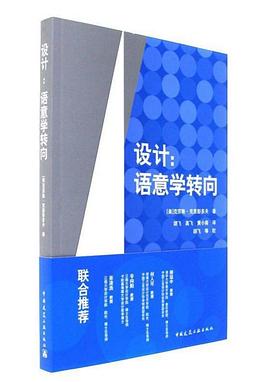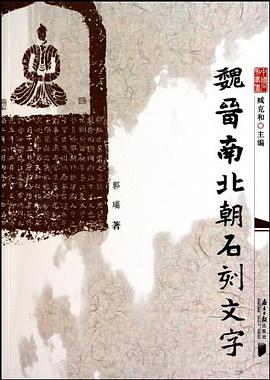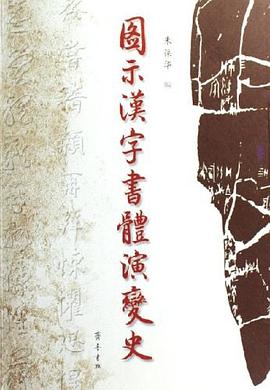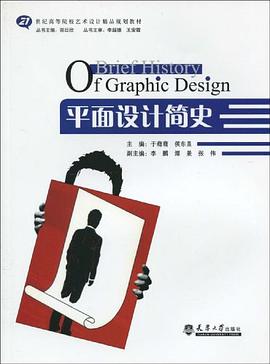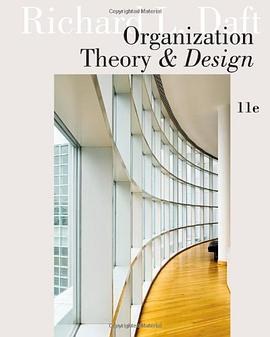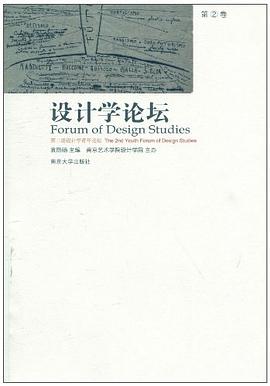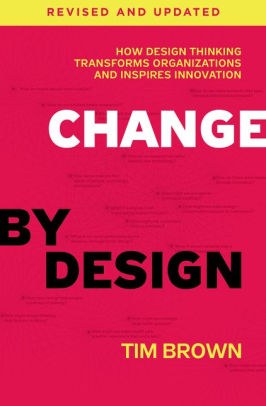

具体描述
The subject of “design thinking” is the rage at business schools, throughout corporations, and increasingly in the popular press—due in large part to work of IDEO, a leading design firm, and its celebrated CEO, Tim Brown, who uses this book to show how the techniques and strategies of design belong at every level of business.
The myth of innovation is that brilliant ideas leap fully formed from the minds of geniuses. The reality is that most innovations come from a process of rigorous examination through which great ideas are identified and developed before being realized as new offerings and capabilities.
Change by Design explains design thinking, the collaborative process by which the designer’s sensibilities and methods are employed to match people’s needs, not only with what is technically feasible, but what is viable to the bottom line. Design thinking converts need into demand. It’s a human-centered approach to problem solving that helps people and organizations become more innovative and more creative.
Introduced a decade ago, the concept of design thinking remains popular at business schools, throughout corporations, and increasingly in the popular press—due in large part to work of IDEO, the undisputed world leading strategy, innovation, and design firm headed by Tim Brown. As he makes clear in this visionary guide—now updated with addition material, including new case studies, and a new introduction—design thinking is not just applicable to so-called creative industries or people who work in the design field. It’s a methodology that has been used by organizations such as Kaiser Permanente, to increase the quality of patient care by re-examining the ways that their nurses manage shift change, or Kraft, to rethink supply chain management.
Change by Design is not a book by designers for designers; it is a book for creative leaders seeking to infuse design thinking into every level of an organization, product, or service to drive new alternatives for business and society.
作者简介
Tim Brown is the CEO and president of IDEO. Ranked independently among the ten most innovative companies in the world, IDEO is the global consultancy that contributed to such standard-setting innovations as the first mouse for Apple and the Palm V.
Today IDEO applies its human-centered approach to drive innovation and growth for the world's leading businesses, as well as for government, education, health care, and social sectors. Tim advises senior executives and boards of Fortune 100 companies and has led strategic client relationships with such corporations as Microsoft, PepsiCo, Procter & Gamble, and Steelcase.
目录信息
INTRODUCTION: THE POWER OF DESIGN THINKING
PART I WHAT IS DESIGN THINKING?
1 Getting Under Your Skin, or how design thinking is about more than style
2 Converting Need Into Demand, or putting people first
3 A Mental Matrix, or "these people have no process!"
4 Building To Think, or the power of prototyping
5 Returning To The Surface, or the design of experiences
6 Spreading The Message, or the importance of story telling
PART II WHERE DO WE GO FROM HERE?
7 Design Thinking Meets The Corporation, or teaching to fish
8 The New Social Contract, or we're all in this together
9 Design Activism, or inspiring solutions with global potential
10 Designing Tomorrow - today
11 Redesigning Design
ACKNOWLEDGEMENTS
IDEO PROJECT CASE STUDIES
INDEX
· · · · · · (收起)
读后感
Tim Brown说所谓设计思维(Design Thinking)就是指利用设计师的敏感性以及设计方法在满足技术可实现性和商业可行性的前提下来满足人的需求,这句话谈到了设计师思考问题的三个出发点....... http://www.iamhukai.com/?p=889
用户评价
如果说市面上大多数商业书籍都在强调“效率”和“结果”,那么这本书更像是一次对“过程”的深度致敬。我花了很长时间才消化完其中关于“定义问题”的部分,因为它提出了一个非常反直觉的观点:我们往往在花大量精力解决一个被错误定义的问题。作者用一种近乎侦探小说的笔法,剖析了如何通过提问的艺术,一步步剥开问题的表层,直抵核心的痛点。这对于我这种常年与复杂系统打交道的从业者来说,简直是醍醐灌顶。它教会我如何构建一个“提问清单”,而不是盲目地投入资源去寻找答案。而且,书中的视觉呈现也做得非常出色,那些流程图和概念图,不是那种生硬的PPT模板,而是真正有助于理解复杂逻辑的思维导图。我特别喜欢它对“原型制作”的定义,它不仅仅是制作一个模型,更是一种与现实世界进行对话的媒介。这种对话,不是单向的命令,而是双向的交流,让物品、服务甚至流程自己“说话”,告诉你哪里做得好,哪里还需要调整。读完后,我感觉自己对“创新”的理解不再是空中楼阁,而是建立在了坚实的实践基础之上。
评分我必须承认,这本书的阅读体验是有些“反直觉”的。它挑战了我们从小到大被灌输的线性思维定势。最让我感到震撼的是,它强调了“跨界合作”的重要性,并且给出了具体的团队构建和沟通策略。它不是简单地说“大家要合作”,而是深入探讨了不同专业背景的人如何在使用同一套设计语言进行高效沟通。比如,工程师的逻辑思维和市场人员的发散思维如何在一个共同的白板上共存而不互相冲突。书里详细描述了一种工作坊的组织结构,那种气氛,让人感觉不像是在工作,更像是在进行一场结构化的集体头脑风暴,每个人都在贡献自己独特的视角。这种对人文和技术的融合描述得非常细腻,没有将任何一方工具化,而是强调了它们的互补性。对于领导者而言,这本书提供了如何构建一个鼓励实验、容忍快速失败的组织文化的蓝图。它让我重新审视了团队内部的权力结构和信息流动方式,认识到真正的创新往往发生在信息交叉和观点碰撞的边缘地带。
评分坦白讲,我不是那种热衷于追捧“设计”概念的圈内人,我对这类书籍通常持保留态度,总觉得里面充斥着太多空洞的术语和矫饰的表达。然而,这本让我耳目一新。它有一种非常朴素而强大的力量,就是那种直击本质的清晰感。我最欣赏的是它对“迭代”和“失败”的态度。在很多传统的思维模式里,“失败”意味着成本、意味着项目的终结,但在这里,失败被重塑成了一种必要的数据收集过程,是通往成功的必经之路上的里程碑。书里用大量的案例,展示了那些看似天马行空的想法是如何通过不断的小步快跑、快速修正,最终落地生根的。比如,有一个关于公共交通系统的案例分析,它展示了如何通过观察人们在换乘时的微小行为习惯,来优化整个系统的流线设计,这种对细节的执着,简直到了偏执的地步,但也正因如此,才带来了颠覆性的改变。阅读过程中,我总忍不住停下来,反思自己过去在面对新挑战时,是不是太过急于求成,没有给予足够的时间和空间去“犯错”和“学习”。这本书的价值,不在于教你成为一个设计师,而在于教你成为一个更具适应性和创新性的思考者。
评分这本书的叙事风格非常个人化,但又充满了普适性的智慧。它没有居高临下的说教感,反而像是一位经验丰富的导师,带着你穿梭于各种真实的商业困境之中,分享他的思考路径和感悟。我尤其喜欢它对“设计伦理”的探讨,这一点在许多强调速度和效率的指南中常常被忽略。作者提醒我们,当我们赋予产品或服务强大的改变社会的能力时,我们也必须承担起相应的责任,确保这些改变是积极的、包容的。这种对设计背后意义的深挖,极大地提升了这本书的厚度。它促使我思考,我所做的一切,最终是为了服务谁?是为了解决一个真实存在的痛点,还是仅仅为了追逐下一个流行趋势?这本书的结构安排也很有层次感,从宏观的思维转变,到微观的操作技巧,环环相扣,一气呵成。它真正做到了打破学科壁垒,为所有致力于解决复杂问题的人,提供了一套行之有效的、充满人本关怀的思维框架。读完之后,我感觉自己看待世界的方式都变得更加立体和富有同情心了。
评分这本书,初看书名还以为是那种励志鸡汤,结果翻开才发现,嚯,完全不是那么回事儿。它更像是一份扎实的“工具箱”,里面塞满了各种解决问题的方法论。我记得最清楚的是关于“同理心”那一章节,作者没有泛泛而谈什么叫共情,而是给出了一整套观察、提问、记录的流程。读着读着,我感觉自己像是被带进了一个高科技实验室,里面的实验对象就是我们日常生活中那些看似无解的难题。书里对用户研究的描述尤其到位,那种深入骨髓的洞察力,让人看了忍不住拍案叫绝。比如,它教你如何区分人们“说的”和人们“做的”之间的鸿沟,这在很多商业咨询里都是被忽视的环节。我试着将书中的几个小技巧运用到我最近的一个项目流程中,原本僵持不下的局面,居然在引入了“快速原型测试”的环节后,找到了意想不到的突破口。这感觉就像是,你一直在用锤子敲钉子,结果有人递给你一个电动螺丝刀,效率瞬间提升了好几个档次。这本书的厉害之处在于,它把“设计思维”这个听起来很高大上的概念,拆解成了可操作、可执行的步骤,真正做到了知行合一。它不是那种读完就束之高阁的理论书,而是那种需要放在手边,随时翻阅、随时实践的案头必备。
评分Watching what people don’t do, listening to what they don’t say. From chasing numbers to serving humans. Sometimes the thing to do is stay home. Take a human-centred approach. Fail early, fail often. Don’t ask what, ask why.
评分Watching what people don’t do, listening to what they don’t say. From chasing numbers to serving humans. Sometimes the thing to do is stay home. Take a human-centred approach. Fail early, fail often. Don’t ask what, ask why.
评分Watching what people don’t do, listening to what they don’t say. From chasing numbers to serving humans. Sometimes the thing to do is stay home. Take a human-centred approach. Fail early, fail often. Don’t ask what, ask why.
评分Watching what people don’t do, listening to what they don’t say. From chasing numbers to serving humans. Sometimes the thing to do is stay home. Take a human-centred approach. Fail early, fail often. Don’t ask what, ask why.
评分Watching what people don’t do, listening to what they don’t say. From chasing numbers to serving humans. Sometimes the thing to do is stay home. Take a human-centred approach. Fail early, fail often. Don’t ask what, ask why.
相关图书
本站所有内容均为互联网搜索引擎提供的公开搜索信息,本站不存储任何数据与内容,任何内容与数据均与本站无关,如有需要请联系相关搜索引擎包括但不限于百度,google,bing,sogou 等
© 2026 book.quotespace.org All Rights Reserved. 小美书屋 版权所有

